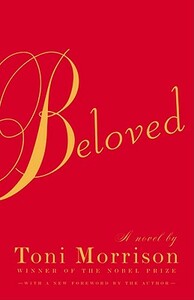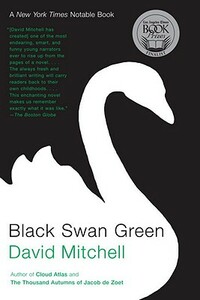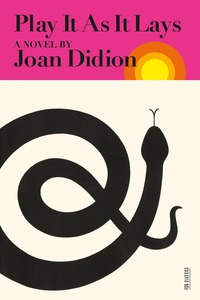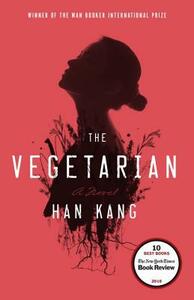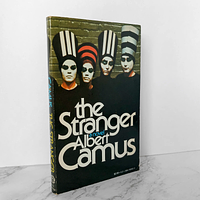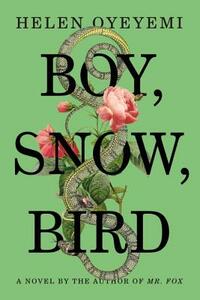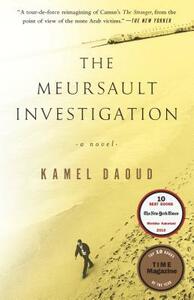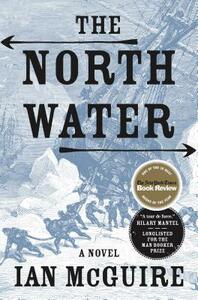Take a photo of a barcode or cover
matthewcpeck's Reviews (587)
My first Toni Morrison, and it is indeed a stunner. "Beloved" has been heavily lauded, analyzed, and debated over the past twenty-nine years, so I doubt that I have any new insights to contribute. Just some thoughts:
-"Beloved" is written in a fairly dense, modernist style that takes some getting used to. Points of view and tenses are fluid, while certain phrases and images are repeated, like refrains. This repetitiveness bugged me at first, but it increases in poetic power as the book progresses. The story is like a giant spiral, circling back to key events ever more tightly until the truth is revealed. And when the point of view veers from omniscient third-person to stream-of-consciousness first-person for four chapters in the second half of the book - the testimonies of each of the primary female characters - Morrison's talents reach a zenith. This was the most impressive section of the novel.
-I sheepishly admit to already having been a fan of Jonathan Demme's 1998 film version. Now that I've finally read the novel, it's clear that an adaptation of "Beloved" was fated to fall short. But I still believe that the movie is special, and overlooked.
-[Spoiler] There is academic speculation that the Beloved character is nothing supernatural, but rather an African-born slave separated from her mother, and imprisoned in a room for years (as hinted at towards the end). Thus Sethe and Beloved are simply convinced that their respective lost family members have returned. After reading this assessment, I can't help but interpret the novel this way.
"Beloved" explores the darkness of American history with the intimacy of an oral history and the eerie resonance of folklore. It's a fulfillment of the potential of fiction.
-"Beloved" is written in a fairly dense, modernist style that takes some getting used to. Points of view and tenses are fluid, while certain phrases and images are repeated, like refrains. This repetitiveness bugged me at first, but it increases in poetic power as the book progresses. The story is like a giant spiral, circling back to key events ever more tightly until the truth is revealed. And when the point of view veers from omniscient third-person to stream-of-consciousness first-person for four chapters in the second half of the book - the testimonies of each of the primary female characters - Morrison's talents reach a zenith. This was the most impressive section of the novel.
-I sheepishly admit to already having been a fan of Jonathan Demme's 1998 film version. Now that I've finally read the novel, it's clear that an adaptation of "Beloved" was fated to fall short. But I still believe that the movie is special, and overlooked.
-[Spoiler] There is academic speculation that the Beloved character is nothing supernatural, but rather an African-born slave separated from her mother, and imprisoned in a room for years (as hinted at towards the end). Thus Sethe and Beloved are simply convinced that their respective lost family members have returned. After reading this assessment, I can't help but interpret the novel this way.
"Beloved" explores the darkness of American history with the intimacy of an oral history and the eerie resonance of folklore. It's a fulfillment of the potential of fiction.
Don't be deterred by descriptors like "coming-of-age" and "semi-autobiographical" and the well-trodden territory of white suburban teenagers, as well as the fact that "Black Swan Green" sounds so much more humdrum than other David Mitchell books. This is one of his very best - witty, inventive, moving, and never dull.
The novel's thirteen perfectly honed chapters cover thirteen months in the life of thirteen-year-old Jason Taylor, who lives a comfortable middle-class life in the fictional titular West Midlands village, during 1982. Jason is a secret poet who yearns to secure his proper place in the social hierarchy of adolescence, while also trying to cope with his parents' crumbling marriage and his debilitating stammer (nicknamed "Hangman"). Over the course of this turbulent year, the book offers a little bit of everything: slapstick, creepiness, angst, first kisses, sadness, nostalgia. It's all rolled out from Jason's point of view, rendered in Mitchell's elastic, incredible prose. The endings of each chapter are particularly "brill", as Jason would put it.
In spite of the specificity of the time and place - which is supplemented by a sometimes overwhelming amount of pop-culture references and slangy words that will have even the most dedicated Anglophiles googling away - this book uncannily channels the highs and lows of tweenhood. Black Swan Green is the type of country burg where any trace of intellectual curiosity in a young boy is considered uncool, or "gay" (not too dissimilar from my hometown, come to think of it). By the end of the book, Jason is a very different kid that he was at the start. His coming of age is told with conviction, hilarity, and an absence of sentimentality.
The novel's thirteen perfectly honed chapters cover thirteen months in the life of thirteen-year-old Jason Taylor, who lives a comfortable middle-class life in the fictional titular West Midlands village, during 1982. Jason is a secret poet who yearns to secure his proper place in the social hierarchy of adolescence, while also trying to cope with his parents' crumbling marriage and his debilitating stammer (nicknamed "Hangman"). Over the course of this turbulent year, the book offers a little bit of everything: slapstick, creepiness, angst, first kisses, sadness, nostalgia. It's all rolled out from Jason's point of view, rendered in Mitchell's elastic, incredible prose. The endings of each chapter are particularly "brill", as Jason would put it.
In spite of the specificity of the time and place - which is supplemented by a sometimes overwhelming amount of pop-culture references and slangy words that will have even the most dedicated Anglophiles googling away - this book uncannily channels the highs and lows of tweenhood. Black Swan Green is the type of country burg where any trace of intellectual curiosity in a young boy is considered uncool, or "gay" (not too dissimilar from my hometown, come to think of it). By the end of the book, Jason is a very different kid that he was at the start. His coming of age is told with conviction, hilarity, and an absence of sentimentality.
Joan Didion met her stated goal, with this 1970 work, of constructing a "novel so elliptical and fast that it would be over before you noticed it". Icy, spare, and relentlessly bleak, it examines the emotional unraveling of actress Maria ("Mar-EYE-a") Wyeth during a series of pivotal life events. "Play It As It Lays" is immersed in a world of movie shoots, parties, booze and barbiturates in Hollywood and Las Vegas. But it's the desert in between that feels like the true spiritual setting. The book's detachment and deliberate flatness go a long way towards simulating the worldview of a depressed individual, and Didion keeps things compelling with striking, isolated images - like lying down on the Hoover Dam or a woman sweeping windblown sand from a concrete porch. "Play It As It Lays" is like an Antonioni film transmuted into a novel. It has power and it stands out of its time, even if it's not always terribly enjoyable.
I can't, in good conscience, assign a star rating to 'A Fire Upon The Deep', because I abandoned it at the halfway point. I haven't voluntarily given up on a book in this way for at least a decade, but I realize that I'm not getting any younger, and that life is too short to force my way through something that was still failing to engage me after 300 long pages. I really did not care for this book.
Vernor Vinge is a former computer science professor and current deep thinker, best known for popularizing the concept of the coming 'singularity' when artificial intelligence will surpass human comprehension. He has remarkable ideas that can be explored in some fascinating interviews available on the internet. A storyteller, however, he is not. This is strong book in conceptual terms: the Milky Way is divided into 'zones' that increase in technology and intelligence with distance from the galactic core. The alien species are wonderfully exotic, and include mobile plants and hive minds. But the novel is faulty in characterization, dialogue, sentences…even simple components like flow and pacing. Apart from some broadly sketched traits, the characters all sound nearly identical - similar to the point that their expository conversations and Vinge's own expository interjections dissolve into one garbled, clunky word stew. The prose is awkward - the last sentence I read ended with "she might look on back on these months as goldenly happy". It's probably unfair to nitpick at these sorts of things in a book with such expansive ideas. But 'A Fire Upon The Deep', at least in its first half, fails to use the power of these ideas to energize a good story. A large part of the failure may be due to the portrayal of the 'Blight' - the malevolent AI(?) entity whose appearance drives the events of the novel. Its nature, intentions, and effects are so vague, so unclear, that there is little of the sense of menace and urgency that compels the reader to find out what happens to the characters. Reading this book is often like happening upon a blog post in an online fan community for something esoterically nerdy - breathless, full of obscure jargon, and insulated against outsiders.
Perhaps the second half of 'A Fire Upon the Deep' is mind-blowingly good and exciting, and I'll read it during an extended convalescence or artificially extended lifespan. But for an example of sprawling, epic science fiction that successfully marries the escapism of space opera with "hard" SF foundations, I'd recommend readers to take on Dan Simmons' "Hyperion" instead.
Vernor Vinge is a former computer science professor and current deep thinker, best known for popularizing the concept of the coming 'singularity' when artificial intelligence will surpass human comprehension. He has remarkable ideas that can be explored in some fascinating interviews available on the internet. A storyteller, however, he is not. This is strong book in conceptual terms: the Milky Way is divided into 'zones' that increase in technology and intelligence with distance from the galactic core. The alien species are wonderfully exotic, and include mobile plants and hive minds. But the novel is faulty in characterization, dialogue, sentences…even simple components like flow and pacing. Apart from some broadly sketched traits, the characters all sound nearly identical - similar to the point that their expository conversations and Vinge's own expository interjections dissolve into one garbled, clunky word stew. The prose is awkward - the last sentence I read ended with "she might look on back on these months as goldenly happy". It's probably unfair to nitpick at these sorts of things in a book with such expansive ideas. But 'A Fire Upon The Deep', at least in its first half, fails to use the power of these ideas to energize a good story. A large part of the failure may be due to the portrayal of the 'Blight' - the malevolent AI(?) entity whose appearance drives the events of the novel. Its nature, intentions, and effects are so vague, so unclear, that there is little of the sense of menace and urgency that compels the reader to find out what happens to the characters. Reading this book is often like happening upon a blog post in an online fan community for something esoterically nerdy - breathless, full of obscure jargon, and insulated against outsiders.
Perhaps the second half of 'A Fire Upon the Deep' is mind-blowingly good and exciting, and I'll read it during an extended convalescence or artificially extended lifespan. But for an example of sprawling, epic science fiction that successfully marries the escapism of space opera with "hard" SF foundations, I'd recommend readers to take on Dan Simmons' "Hyperion" instead.
It begins with a young woman deciding to end her consumption of animal products, and finishes with her teetering on the edge of mortality. "The Vegetarian" is an intense and enigmatic novel that cleverly studies its protagonist, Yeong-hye, by way of observing her (mostly) through the eyes of three others: her loutish husband; her brother-in-law, a struggling video artist; and her superficially upbeat sister. Over the course of three years, Yeong-hye undergoes a rather dramatic behavioral shift. What initially seems like a revolt against a meat-loving and patriarchal society will grow - ultimately - into a rebellion upon her own biology.
Describing the strange plot of "The Vegetarian" cannot do justice to the experience of reading it. Even with the occasional stilted dialogue and possible liberty-taking that are inevitable with Korean being translated into English, Deborah Smith's translation of Han Kang's original is pretty stunning. With its recurring imagery of shimmering leaves, spattered blood, and naked flesh, the prose has a heightened and slightly surreal physicality. You can almost see the events taking place before your eyes, on an IMAX screen. This is a harrowing, sensual, sad, and darkly funny book that deserves to be discovered by readers looking for a quality different than that found in most contemporary western literature.
Describing the strange plot of "The Vegetarian" cannot do justice to the experience of reading it. Even with the occasional stilted dialogue and possible liberty-taking that are inevitable with Korean being translated into English, Deborah Smith's translation of Han Kang's original is pretty stunning. With its recurring imagery of shimmering leaves, spattered blood, and naked flesh, the prose has a heightened and slightly surreal physicality. You can almost see the events taking place before your eyes, on an IMAX screen. This is a harrowing, sensual, sad, and darkly funny book that deserves to be discovered by readers looking for a quality different than that found in most contemporary western literature.
If ever I find myself in a truly hopeless situation - such as clutching to piece of airplane fuselage while plummeting from the heavens - I might calm my nerves by way of detaching myself from the circumstances, admiring the sky, and considering how ridiculous it is that everything led to this moment. This is also my very crude interpretation of the message of "The Stranger", Albert Camus's bleak, laconic, switchblade of a novel, which I've finally gotten around to reading.
The story of French-Algerian Meursault - the death of his mother; his shooting and killing of an unnamed "Arab" on a sunny beach; his trial and sentencing - reads in an eerily timeless way, at least in Matthew Ward's American-style translation. At times, especially in the first half of the novel, it seems like an ancestor of minimalistic slacker tales like "Jesus' Son". There is a dark humor throughout, as well, originating in Meursault's tendency to shrug off the drama of the events - like when he loses interest in the prosecutor's corrosive closing statements simply because the courtroom's heat is making him tired. When Meursault finally loses his cool at the end, in a debate with an obstinately hopeful prison chaplain, the scene may seem slightly familiar. But that's probably due to this type of climactic convict/cleric exchange having occurred in countless books and movies and TV shows since "The Stranger" was released in 1942.
The emotions of its antihero may often be inapproachable, as well as the way his apathy extends to the feelings of (most) of the others in his life, and - oh yeah - his murder victim. But at other times, Meursault's attitude is an understandable response to the "gentle indifference" of the universe. "The Stranger" is a unique and powerful melding of art and philosophy that's as streamlined as a thriller.
The story of French-Algerian Meursault - the death of his mother; his shooting and killing of an unnamed "Arab" on a sunny beach; his trial and sentencing - reads in an eerily timeless way, at least in Matthew Ward's American-style translation. At times, especially in the first half of the novel, it seems like an ancestor of minimalistic slacker tales like "Jesus' Son". There is a dark humor throughout, as well, originating in Meursault's tendency to shrug off the drama of the events - like when he loses interest in the prosecutor's corrosive closing statements simply because the courtroom's heat is making him tired. When Meursault finally loses his cool at the end, in a debate with an obstinately hopeful prison chaplain, the scene may seem slightly familiar. But that's probably due to this type of climactic convict/cleric exchange having occurred in countless books and movies and TV shows since "The Stranger" was released in 1942.
The emotions of its antihero may often be inapproachable, as well as the way his apathy extends to the feelings of (most) of the others in his life, and - oh yeah - his murder victim. But at other times, Meursault's attitude is an understandable response to the "gentle indifference" of the universe. "The Stranger" is a unique and powerful melding of art and philosophy that's as streamlined as a thriller.
Briefly, this is an unusual novel with an unusual conception. A young British writer takes the skeletal structure of "Snow White" and transplants it to central Massachusetts in the mid-20th-century, for a morally complex look at race and gender. Even allowing for the fairy-tale roots and some occasional light surrealism, "Boy, Snow, Bird" is not as fantastical as some of its press would lead you believe. It's more about creating depth of character than telling a rollicking story, despite a truly jaw-dropping plot twist towards the end. And sometimes the novel is leisurely to a fault, like in its too-long epistolary section. But Helen Oyeyemi's writing is varied and fascinating enough to make one seek out her other work. There is a notably beautiful sentence or world-weary witticism in almost every paragraph (“Because he says he can't stand you and you act like you can't stand him, and whenever a man and a woman behave like that toward each other, it usually means something's going on”); the book sometimes sounds as if it was written by a much older person. And even that lengthy section of letters has, encased within, haunting retellings of African-American folklore. "Boy, Snow, Bird" is unevenly paced, sometimes frustrating, but often ingenious.
(I ran out and got a copy of this book immediately after reading Camus's 'The Stranger' for the first time.) This innovative debut novel by controversial Algerian journalist Kamel Daoud is narrated by an elderly, wine-guzzling man named Harun in a seedy Oran bar. Harun, as it turns out, was seven years old when his older brother Musa was shot and killed by the Frenchman Meursault on a sizzling beach in 1942 - the central event in 'The Stranger', in which the victim is an anonymous 'Arab'.
In the tradition of 'Wide Sargasso Sea', 'The Meursault Investigation' - which is more aptly titled in its alternate translation 'Meursault, Counter Investigation' - unfolds an entire universe from a minor character in a classic work of fiction, and uses it as a commentary on colonialism and racism. But this novel is that and more. It parallels the structure and imagery of 'The Stranger' and replicates its themes and its imagery, but in a style that couldn't be more different. Harun is another outsider whose life has been permanently altered by his brother's death at the hands of the original outsider, Meursault. (Albert Camus is never mentioned by name - in this book, it is implied that the 1942 book was written by the murderer himself.) 'The Meursault Investigation' is a fascinating, beautiful, angry novel, and neither book should be read without its counterpart.
In the tradition of 'Wide Sargasso Sea', 'The Meursault Investigation' - which is more aptly titled in its alternate translation 'Meursault, Counter Investigation' - unfolds an entire universe from a minor character in a classic work of fiction, and uses it as a commentary on colonialism and racism. But this novel is that and more. It parallels the structure and imagery of 'The Stranger' and replicates its themes and its imagery, but in a style that couldn't be more different. Harun is another outsider whose life has been permanently altered by his brother's death at the hands of the original outsider, Meursault. (Albert Camus is never mentioned by name - in this book, it is implied that the 1942 book was written by the murderer himself.) 'The Meursault Investigation' is a fascinating, beautiful, angry novel, and neither book should be read without its counterpart.
"The North Water", a novel about a doomed English whaling vessel in the middle 19th century, is a book with lots of meticulous descriptions of bodily fluids. Page after page of spit, blood, mucus, pus, excrement; oozing and gushing and squirting. This fixation on secretions was vivid at first, then annoying, and finally just laughter-inducing. It's the most insistent symptom of a sort of forced machismo that permeates this book - the runner-up being the dialogue spoken by nearly every character sounding like that of a gangster film, with plenty of "what the f**k??" and "we're f**cked!".
That's too bad: because when Ian McGuire turns to quieter moments, like descriptions of the Arctic landscape, his prose can be gorgeous, distinctive, and poetic. The period detail is impressive, and the plotting economic and tight. "The North Water" is at its best in its final third. It's a good read, but it's no "Blood Meridian". It's much closer to "No Country For Old Men".
That's too bad: because when Ian McGuire turns to quieter moments, like descriptions of the Arctic landscape, his prose can be gorgeous, distinctive, and poetic. The period detail is impressive, and the plotting economic and tight. "The North Water" is at its best in its final third. It's a good read, but it's no "Blood Meridian". It's much closer to "No Country For Old Men".
4 stars and a half. "Inverted World" is surprising - not just in the sense of its mind-bending plot, but in the sense of exceeded expectations. I've finally read it after purchasing it - years ago - as a bargain e-book that sounded somewhat interesting, and now I want to seek out everything by Christopher Priest.
Priest, best known for "The Prestige", begins the novel with an enigmatic prologue, after which we are inserted into the life of a young man named Helward, who has just come of age and is starting an apprenticeship in a city called…Earth. Helward discovers that his city is actually mobile, and its survival depends on a painstaking, Sisyphean process of continuously assembling and dissembling a system of railroad tracks so it can be winched forward a tenth of a mile each day, northward through a rugged landscape populated by the occasional squalid village. This central image - which seems plucked directly from the subconscious - is fascinating enough. But as the protagonist continues his education and explores the reality of his environment, stuff gets really bizarre. And then, in the book's final third, the rug is pulled out from under the reader in a truly spectacular fashion.
"Inverted World" may not be a book to read for witty dialogue and diverse characterization. But this is a novel that successfully generates tension, wonder and mystery from physics and geometry - hard science! - in the way that science fiction should. Priest's calm, controlled prose creates a sense of eeriness, and he thankfully keeps the usual SF world-building lingo to a bare minimum. The structure of its story is an astonishing feat of imagination. If this sounds even a bit interesting to you, I recommend that you read it.
Priest, best known for "The Prestige", begins the novel with an enigmatic prologue, after which we are inserted into the life of a young man named Helward, who has just come of age and is starting an apprenticeship in a city called…Earth. Helward discovers that his city is actually mobile, and its survival depends on a painstaking, Sisyphean process of continuously assembling and dissembling a system of railroad tracks so it can be winched forward a tenth of a mile each day, northward through a rugged landscape populated by the occasional squalid village. This central image - which seems plucked directly from the subconscious - is fascinating enough. But as the protagonist continues his education and explores the reality of his environment, stuff gets really bizarre. And then, in the book's final third, the rug is pulled out from under the reader in a truly spectacular fashion.
"Inverted World" may not be a book to read for witty dialogue and diverse characterization. But this is a novel that successfully generates tension, wonder and mystery from physics and geometry - hard science! - in the way that science fiction should. Priest's calm, controlled prose creates a sense of eeriness, and he thankfully keeps the usual SF world-building lingo to a bare minimum. The structure of its story is an astonishing feat of imagination. If this sounds even a bit interesting to you, I recommend that you read it.
